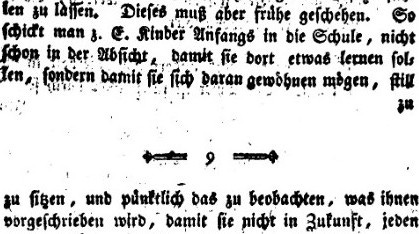part II of IV
continued from part I:
“They ask questions!” — Laurie Moroz Werner, after teaching her first class.
Of course, you could argue, McWhorter didn’t get this from reading Kant or absorbing commonplace ideas in the Faculty Lounge, he got it from his infallible inner moral compass, the one they teach at that fancy Quaker school he attended, where they handle their inner moral compass like a Red Guard handling the Little Red Book. A good thing too, because it dispenses him from doing the basic footwork you’re entitled to expect from a cub reporter:
“In January, Gov. Ron DeSantis of Florida announced he would ban a draft curriculum proposed by the College Board for a new Advanced Placement course in African American studies, criticizing the educational merit of the course. This month the College Board released an official curriculum that revised the course by designating some of the writers and ideas in the draft curriculum as optional topics of study rather than core lessons.
The board did the right thing…”1
The Board had done no such thing, either right or wrong. It had however, five days earlier, denounced the “misinformation” peddled by DeSantis and the Florida Board of Education. McWhorter’s claims, like those of the Governor and the Florida Board, are so much at odds with a the principles of course design they could only have come from a politician, a columnist at the New York Times, or a professor at Columbia University.
Advanced Placement courses are designed, as most courses are, with a basic framework, an outline; later topics are chosen to be treated in the classroom—for instance, “slavery.” After that materials are chosen to promote study and encourage class discussion. Among those materials there are primary sources, say, a poster offering a reward for an escaped slave. To supplement these and promote study, a choice of secondary sources will eventually be assigned: writings, mostly scholarly, that offer opinions, discussions and interpretations around each topic. At that time the College Boards were nowhere close to the end of that process. They had not drawn clear boundaries between the topics thought to be important to the course, and the additional material supplied to encourage discussion. That’s a distinction neither McWhorter nor the Florida Department of Education are competent to draw: between what is taught and how it is taught. To make that distinction you’d have to know something about the history of teaching in America, especially the part once played by Education in the lives of Black people—which is now, unfortunately, the part played in the education of all.
You’d have to know the story that began the previous chapter, about a Black man at the opera, was W. E. B. Du Bois’ response to the influential Black leader Booker T. Washington who insisted, in a speech in 1895, that Blacks should not aim for college but should focus instead on practical training:
“The wisest among my race understand that the agitation of questions of social equality is the extremest folly. The opportunity to earn a dollar in a factory just now is worth infinitely more than the opportunity to spend a dollar in an opera-house.” — Atlanta Exposition Address
For Du Bois the path to social, political and economic equality ran through advanced education in order to prepare African Americans for leadership and decision-making roles in society. Du Bois made explicit what Booker T. Washington and McWhorter dissimulate in the service of Hegemonism: the problem is not uniquely Black, it’s a struggle in which Blacks are at once the spearhead and the victims: should Education reinforce or eradicate social, political and economic subservience?
In 1766, Immanuel Kant had tried to break with British Sensualist philosophy, which argued that Knowledge was acquired by the absorption and processing of sense experience. Morality, Kant argued, was not acquired but innate. Later he extended that insight to Logic: neither morality nor logic could be deduced from events in the external world. Education, then, was not the way to discover Truth through experience, it was the means by which experience could be held at bay:
“Discipline keeps human beings from being diverted from their human calling by their animal drives.”
[…]
“So in the beginning they first send children to school, just not with the intent of having them learn something there, but rather so that they’ll get used to sit still and pay attention to regulations.”2
Kant’s arguments have time and again played out in the class- and boardrooms of the elite: any impulse toward practical charity, or kindness, or social activism of course, must be resisted in favor of the pure moral action, which consists of endless debating points. If, as McWhorter put it, that which is “illogic” is “indisputably immoral,” then virtue must consist in seeming logical. The choice in the Columbia or Florida classroom, in the pages of the New York Times or before the French Assembly, is between the secretive pursuit of Evil by the enemies of Truth, and the peaceable contemplation of transparent Good. Twitter incites you to go out and look for lies; The New York Times turns up every day on your doorstep. Billaud-Varenne would have been pleased.
part III of V:
WOID XXIII-10a2. 2/4
John McWhorter, “DeSantis May Have Been Right,”New York Times (February 16, 2023): https://www.nytimes.com/2023/02/16/opinion/desantis-may-have-been-right.html
Immanuel Kant, Über Pädagogik (Königsberg: Friedrich Nicolovius, 1803), pp. 8-9.





